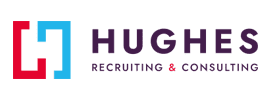One of the most challenging aspects of recruitment is finding qualified candidates—and studies back this up. According to a Glassdoor report, 76% of recruiters say attracting high-quality candidates is difficult.¹
You can post a job opening and receive dozens, hundreds, or even thousands of applications. However, this doesn’t guarantee you’ll find the right fit for the job. This is often because many candidates apply without having the necessary qualifications, simply seeking a paycheck.
Fortunately, Artificial intelligence, or AI for short, can help by doing the heavy lifting when it comes to identifying the best candidates.
Benefits of AI in Recruitment You Can’t Ignore
Artificial intelligence improves hiring in several key ways. Some of the most impactful include:
Speeding Up the Hiring Process
Remember the last time you had to sort through a pile of resumes? It’s not only time-consuming, but you might also miss great candidates because there are so many. AI helps save time by screening resumes for you. It uses algorithms to look for key qualifications, experiences, and skills that match the job description, all based on the criteria you set.
Finding the Perfect Match
When hiring, it’s not just about finding someone who can do the job—it’s about finding the person who will thrive in the role and fit well with the company culture. AI recruiting software makes this easier by analyzing factors like skills, experience, personality traits, and cultural fit.
AI algorithms learn from past hires, improving over time to predict which candidates will perform well and stay with the company long-term. This doesn’t just help you find good candidates—it helps you find the best ones, reducing turnover and increasing job satisfaction.
Reducing Bias in Hiring
Let’s face it—humans are naturally biased. Even if we don’t mean to be, our decisions are often influenced by unconscious biases, like favoring candidates who went to the same school or share similar backgrounds. These biases can lead to less diverse teams, which is bad not just for equality, but for business too.
AI, when programmed correctly, doesn’t have these biases. It evaluates candidates based purely on data—skills, experience, and qualifications—without being influenced by things like gender, race, or age.
Some AI recruitment tools even anonymize resumes, removing details that could trigger unconscious bias. This helps create a fairer process, allowing candidates to be judged solely on their abilities.
Enhancing the Candidate Experience
Candidate experience is very important and can make or break your hiring efforts. Recent statistics show that 49% of candidates have turned down a job offer because of a bad experience.² On the other hand, 81% of candidates said that a positive experience influenced their decision to accept an offer.
A poor experience can occur at different stages of the recruiting process, such as reading job descriptions, during interviews, or even after the interview.
For example, 60% of candidates quit during the online job application because it’s too long or complicated. Also, 65% of candidates lose interest in a job if they have a bad interview experience, and 76% say that not hearing back after applying is worse than not hearing back after a first date.
What’s even more troubling is that 72% of candidates are likely to share their bad experiences online or directly with others. This can discourage other potential candidates from applying, making it even harder to find high-quality candidates.
The key point is that candidates are judging your company just as much as you’re judging them. A smooth, quick, and engaging hiring process can greatly improve how they see your company.
Faster Response Time
Have you ever applied for a job and waited weeks without any response? It’s frustrating and leaves a bad impression. AI can help fix that.
With AI-powered chatbots, candidates can get answers to their questions right away, any time of day or night. These chatbots can guide candidates through the application process, schedule interviews, and even give feedback if they don’t get the job. It’s like giving every applicant their own personal assistant, making sure they feel valued and informed throughout the process.
In fact, 62% of candidates would rather use an automated system that handles the interview process quickly than deal with long back-and-forth communication.
Personalized Recruitment Experience
But it’s not just about quick responses. AI can also make the recruitment experience more personal. By analyzing a candidate’s profile, AI can suggest jobs that are a good fit, offer interview tips, and customize communication to match their preferences.
This kind of personalization makes candidates feel noticed and appreciated, which can be a big factor in whether they choose to accept a job offer.
Cutting Costs
Hiring can be expensive. From advertising jobs to paying recruiters, the costs add up fast. AI helps cut these costs by making the process faster and more efficient.
By automating tasks like resume screening and interview scheduling, AI frees up recruiters to focus on more important tasks, reducing the need for a large team. Plus, because AI finds the best candidates faster, your organization can spend less on long hiring processes. It’s a win-win: better hires at a lower cost.
How Exactly Can You Incorporate AI into Your Hiring Strategy?
Here’s how you can supercharge your recruitment process with AI hiring tools to find, engage, and retain high-quality candidates more effectively.
1. Candidate Sourcing
Traditional methods like job boards can be hit or miss, especially when you’re trying to reach passive candidates who aren’t actively searching for a job.
AI-powered recruiting tools like LinkedIn Recruiter and hireEZ improve talent sourcing by scanning millions of profiles across various platforms and identifying candidates who fit your criteria—even those who aren’t currently on the job hunt.
2. Candidate Screening
Once you’ve got a stack of resumes, the real challenge begins: screening. Sorting through hundreds, sometimes thousands, of applications can be overwhelming, not to mention time-consuming.
AI recruiting tools like Ideal and HireVue help you cut through the noise by automatically screening resumes, ranking candidates based on how well they match the job requirements.
3. Candidate Engagement
You’ve got great candidates in the pipeline—now what? The last thing you want is to lose them because they feel ignored or left in the dark.
AI chatbots like Mya Systems can keep the lines of communication open, answering candidates’ questions in real time, updating them on their application status, and even guiding them through the next steps. This constant engagement keeps suitable candidates interested and reduces the risk of losing them to competitors.
4. Interviews
Interviews are where you really get to know your candidates—but how do you make sure you’re getting the full picture? AI recruiting platforms like HireVue analyze video interviews, picking up on subtle cues like facial expressions and tone of voice that might not be obvious at first glance. This deeper analysis helps you understand what candidates are saying and how they say it.
5. Predictive Analytics
AI tools like Eightfold.ai use predictive analytics to help you make more informed choices. By analyzing a candidate’s past experiences, skills, and behaviors, this AI recruitment software can predict how well they’re likely to perform in the role, even in positions they haven’t held before. Predictive analytics doesn’t just tell you who’s a good fit today—it helps you identify who will continue to grow and excel in your organization over time.
6. Bias Reduction
Bias in hiring is a real issue, and it can prevent you from finding the best person for the job. AI recruiting tools like Pymetrics and Blendoor help reduce unconscious bias by focusing on candidates’ abilities rather than their backgrounds. For example, Pymetrics uses game-based candidate assessments to evaluate cognitive and emotional traits, while Blendoor anonymizes candidate data during the screening process.
7. Job Postings
Creating a job posting is one thing—getting it in front of the right people is another. AI recruiting software like Textio and PandoLogic help you optimize both the content and placement of your job ads. Textio ensures your job descriptions are inclusive and compelling, while PandoLogic uses data to determine the best recruitment platforms and times to post.
8. Onboarding Process
The recruitment process doesn’t stop once the offer is accepted. Onboarding is critical to retaining high-quality candidates, and recruiting software like Enboarder can personalize this experience. These platforms guide new hires through their first days, weeks, and months, ensuring they feel supported, connected, and ready to contribute.
9. Continuous Improvement
Recruitment is an ongoing process, and there’s always room for improvement. AI tools like Beamery and Google Analytics provide valuable insights into what’s working and what isn’t in your process—and help you make informed hiring decisions. Analyzing data from each stage can help you identify patterns, spot bottlenecks, and make adjustments to improve future recruitment efforts.
10. Retention
Talent acquisition is one thing—keeping those people is another. AI tools like Workday use predictive analytics to identify employees who might be at risk of leaving, giving you the chance to address any issues before they become deal-breakers. These tools analyze factors like candidate engagement, performance, and even external job market trends to give you a heads-up on potential turnover.
ELEVATE YOUR EMPLOYER BRAND AND GET THE BEST CANDIDATES WITH HUGHES RESOURCES
Beyond being a staffing firm, Hughes Resources is driven by excellence. We’re committed to ensuring that our clients receive well-vetted, high-quality candidates—and that potential candidates have a positive experience. This is why we continually innovate our hiring process, whether through headhunting or AI recruiting.
Having experts handle your hiring needs can save you the costs of “trial and error” and give you more time to focus on productive business activities. If you’re looking to fill vacancies in manufacturing, clerical, professional, or related sectors, feel free to contact us today by filling out this short form. We’re always happy to help!
References
- “Understanding the Impact of Quality Candidates” Glassdoor, Sept. 2017, https://media.glassdoor.com/pr/press/pdf/GD_InformedCandidateSurvey_2017.pdf
- “50+ Candidate-Experience Statistics [2024]” Withe, 6 Feb. 2024, https://withe.co/blog/candidate-experience-statistics

























